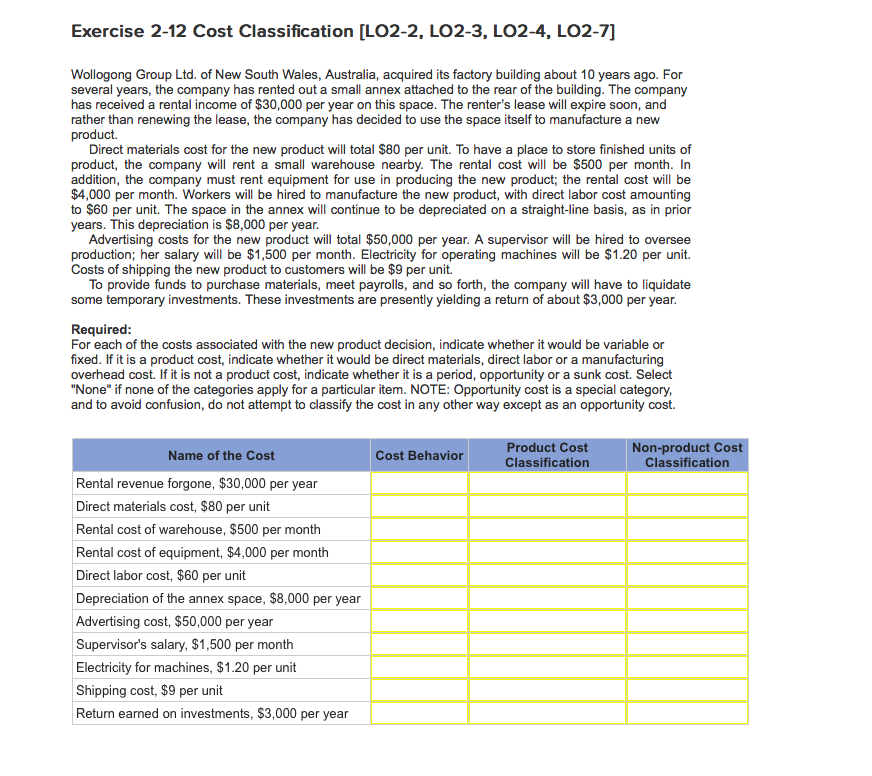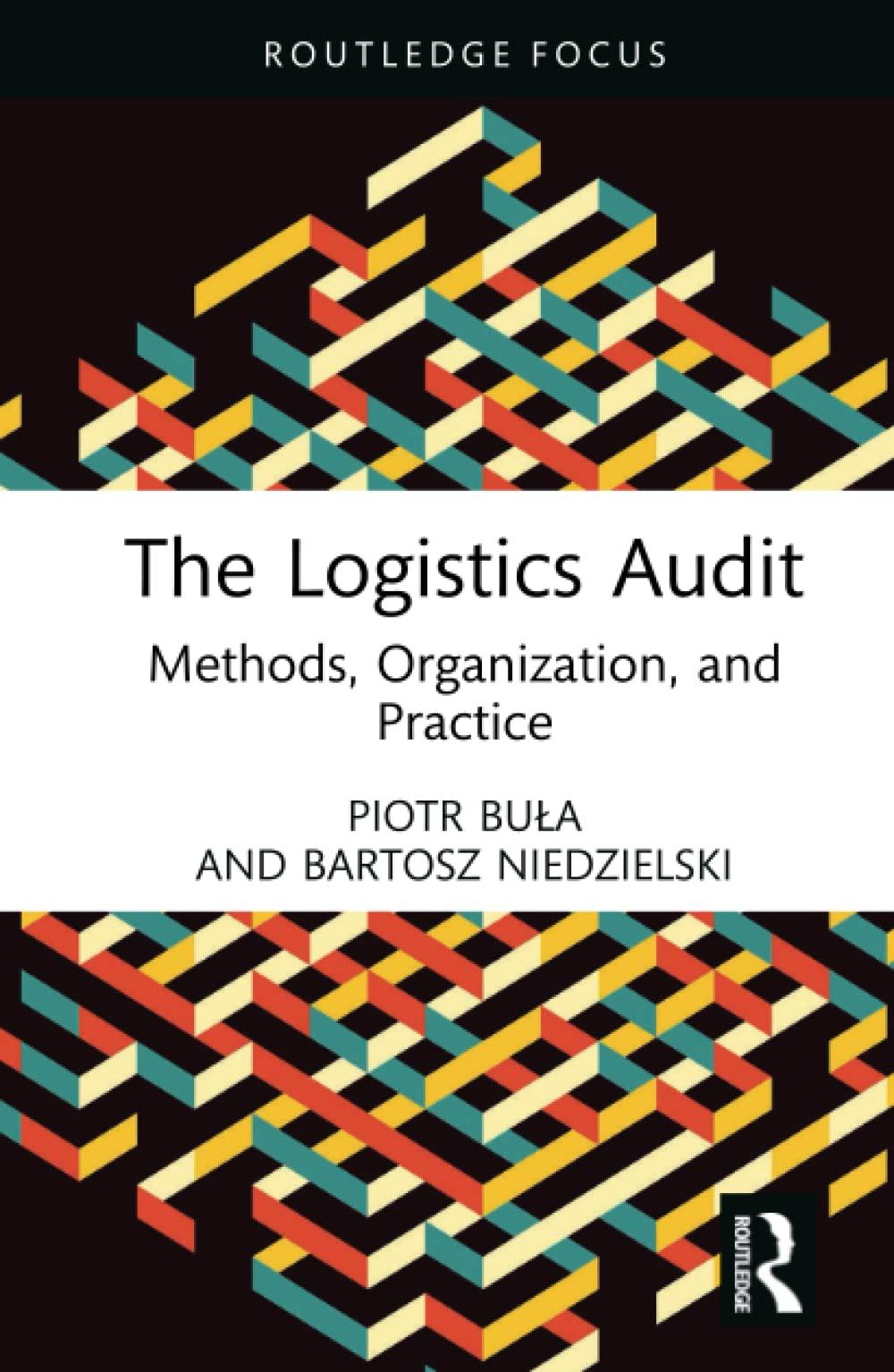Please solve this, exactly like its posted. Please no abbreviations and incomplete answers, with as much explanation as possible. THANK YOU

Exercise 2-12 Cost Classification [LO2-2, LO2-3, LO2-4, LO2-7] Wollogong Group Ltd. of New South Wales, Australia, acquired its factory building about 10 years ago. For several years, the company has rented out a small annex attached to the rear of the building. The company has received a rental income of $30,000 per year on this space. The renter's lease will expire soon, and rather than renewing the lease, the company has decided to use the space itself to manufacture a new product. Direct materials cost for the new product will total $80 per unit. To have a place to store finished units of product, the company will rent a small warehouse nearby. The rental cost will be $500 per month. In addition, the company must rent equipment for use in producing the new product; the rental cost will be $4,000 per month. Workers will be hired to manufacture the new product, with direct labor cost amounting to $60 per unit. The space in the annex will continue to be depreciated on a straight-line basis, as in prior years. This depreciation is $8,000 per year Advertising costs for the new product will total $50,000 per year. A supervisor will be hired to oversee production; her salary will be $1,500 per month. Electricity for operating machines will be $1.20 per unit. Costs of shipping the new product to customers will be $9 per unit. To provide funds to purchase materials, meet payrolls, and so forth, the company will have to liquidate some temporary investments. These investments are presently yielding a return of about $3,000 per year. Required For each of the costs associated with the new product decision, indicate whether it would be variable or fixed. If it is a product cost, indicate whether it would be direct materials, direct labor or a manufacturing overhead cost. If it is not a product cost, indicate whether it is a period, opportunity or a sunk cost. Select None" if none of the categories apply for a particular item. NOTE: Opportunity cost is a special category, and to avoid confusion, do not attempt to classify the cost in any other way except as an opportunity cost Name of the Cost Rental revenue forgone, $30,000 per year Direct materials cost, $80 per unit Rental cost of warehouse, $500 per month Rental cost of equipment, $4,000 per month Direct labor cost, $60 per unit Depreciation of the annex space. $8,000 per year Advertising cost, $50,000 per year Supervisors salary, $1,500 per month Electricity for machines, $1.20 per unit Shipping cost, $9 per unit Return earned on investments, $3,000 per year







